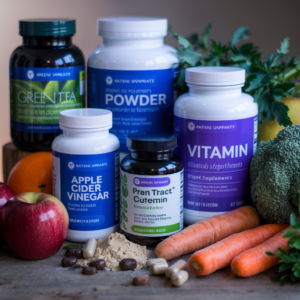The Essential Do’s and Don’ts of the Flexitarian Diet for Weight Loss
Introduction
The Flexitarian Diet is a plant-forward eating style that promotes weight loss and improved health while still allowing for the occasional inclusion of meat and animal products. With its emphasis on flexibility and balance, the Flexitarian Diet is a great option for those who want the benefits of a plant-based diet without fully committing to vegetarianism. To succeed  on this diet and maximize your weight loss results, it’s important to follow certain guidelines. This list of do’s and don’ts will help you navigate the Flexitarian Diet and achieve your health goals.
on this diet and maximize your weight loss results, it’s important to follow certain guidelines. This list of do’s and don’ts will help you navigate the Flexitarian Diet and achieve your health goals.
Do’s of the Flexitarian Diet
1. Do Focus on Plant-Based Foods
The foundation of the Flexitarian Diet is plant-based foods, so focus on incorporating a wide variety of fruits, vegetables, whole grains, and legumes into your meals. These foods are naturally lower in calories and rich in essential nutrients like fiber, vitamins, and minerals. By filling your plate with plant-based options, you’ll promote weight loss while supporting overall health.
Prioritizing plant-based foods will also help you reduce your reliance on animal products, making the Flexitarian Diet a more sustainable way of eating in the long term.
2. Do Include Plant-Based Protein in Every Meal
Protein is essential for weight loss and muscle maintenance, so make sure to include a source of plant-based protein in every meal. Foods like beans, lentils, tofu, and tempeh are excellent plant-based protein options that provide the necessary nutrients without the added calories or saturated fats found in meat.
Including protein in every meal will help keep you full and satisfied, preventing overeating and supporting your weight loss goals.
3. Do Plan Your Meals Ahead of Time
Meal planning is crucial for success on the Flexitarian Diet, especially if you’re new to plant-based eating. Plan your meals and snacks ahead of time to ensure you have balanced, nutrient-rich options available. This will help you avoid processed foods and make it easier to stick to your weight loss goals.
Preparing meals in bulk and keeping healthy snacks like fruits, nuts, and hummus on hand can make sticking to the Flexitarian Diet easier and more convenient.
4. Do Embrace Flexibility
One of the greatest benefits of the Flexitarian Diet is its flexibility. You don’t have to give up meat entirely—enjoy it in moderation while making plant-based foods the focus of your meals. Whether you choose to have one or two meat-free days per week or only include meat occasionally, the Flexitarian Diet allows you to make adjustments based on your preferences and lifestyle.
This flexibility makes the diet more sustainable in the long term and helps you avoid feeling deprived or restricted.
5. Do Stay Hydrated
Proper hydration is essential for overall health and weight loss. Drinking enough water  supports digestion, helps flush out toxins, and keeps your energy levels up. Aim for at least 8 glasses of water per day, and consider drinking herbal teas or adding lemon to your water for extra flavor.
supports digestion, helps flush out toxins, and keeps your energy levels up. Aim for at least 8 glasses of water per day, and consider drinking herbal teas or adding lemon to your water for extra flavor.
Staying hydrated will also help prevent cravings and overeating, as thirst is often mistaken for hunger. Keep a water bottle with you throughout the day to ensure you’re getting enough fluids.
Don’ts of the Flexitarian Diet
1. Don’t Overeat Processed Vegetarian Foods
While the Flexitarian Diet encourages plant-based eating, it’s important to avoid relying on processed vegetarian foods like meat substitutes, packaged snacks, and frozen meals. These foods are often high in unhealthy fats, added sugars, and artificial ingredients, which can hinder your weight loss progress.
Focus on whole, unprocessed foods like fruits, vegetables, legumes, and whole grains to get the most nutritional benefits and support sustainable weight loss.
2. Don’t Skip Protein
Protein is a key nutrient for weight loss, and it’s important to include it in every meal, especially if you’re reducing your intake of animal products. Skipping protein-rich foods can lead to muscle loss, fatigue, and difficulty maintaining your weight loss. Make sure to include sources of plant-based protein like beans, lentils, tofu, or tempeh in every meal.
If you’re including animal products in your diet, choose lean proteins like chicken, fish, or eggs to complement your plant-based meals.
3. Don’t Forget About Portion Control
While many plant-based foods are naturally lower in calories, it’s still important to practice portion control, especially with higher-calorie foods like nuts, seeds, and oils. Eating large portions of these foods can lead to excess calorie intake, which may hinder your weight loss progress.
Practice mindful eating and use smaller plates to help control portions without  feeling deprived. Moderation is key when incorporating calorie-dense plant-based foods into your diet.
feeling deprived. Moderation is key when incorporating calorie-dense plant-based foods into your diet.
4. Don’t Neglect Variety
Eating a variety of plant-based foods is essential for meeting all your nutritional needs on the Flexitarian Diet. Relying on the same few foods can lead to nutrient deficiencies and make your meals less enjoyable. Experiment with different vegetables, grains, legumes, and plant-based proteins to ensure you’re getting a wide range of nutrients and keeping your meals interesting and satisfying.
Incorporating a variety of colorful fruits and vegetables into your meals will also help ensure you’re getting a wide range of vitamins, minerals, and antioxidants.
5. Don’t Be Too Hard on Yourself
The Flexitarian Diet is designed to be flexible, so don’t stress about being perfect. It’s okay to enjoy meat or animal products occasionally—what matters most is that the majority of your meals are plant-based. Allow yourself to enjoy your favorite foods in moderation, and focus on making sustainable changes that you can stick to in the long term.
Remember that the Flexitarian Diet is about balance and flexibility, not strict rules or restrictions. Give yourself grace and focus on progress, not perfection.
Conclusion
The Flexitarian Diet is a highly effective and sustainable way to lose weight while improving overall health and supporting environmental values. By following these essential do’s and don’ts, you can maximize your success on the Flexitarian Diet and achieve your weight loss goals while maintaining a balanced, nutritious, and enjoyable eating plan.
Focus on whole, unprocessed foods, include plant-based protein in every meal, and stay hydrated to ensure long-term success on your plant-forward journey.